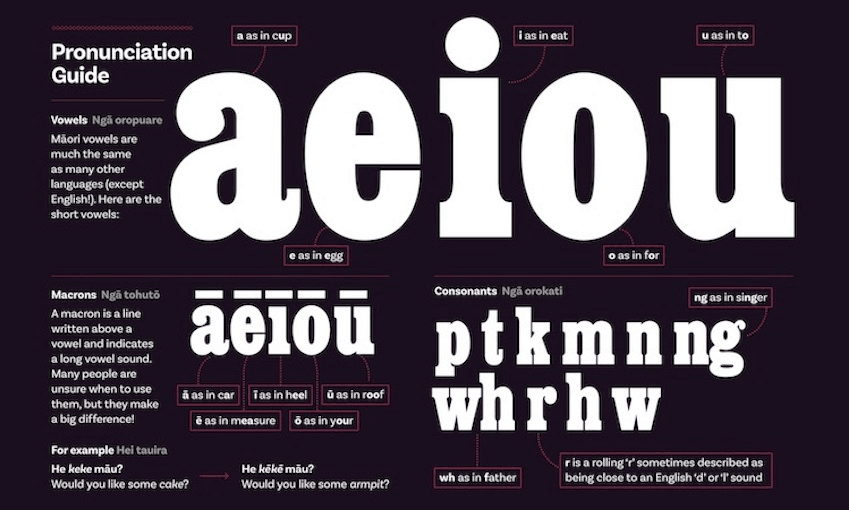With te reo Māori classes about to start for 2020, the ‘no vacancy’ signs are going up around the country as people continue to flock to learn our native language.
There’s no denying that a reo-volution is underway across Aotearoa.
At Te Wānanga o Aotearoa we have around 8000 people enrolled on our te reo Māori programmes for 2020 and we could easily enrol more. More than 500 people are on our waiting lists and we agree wholeheartedly with Te Taura Whiri chief executive Ngahiwi Apanui that demand for te reo Māori now far exceeds supply.
Our enrolment figures for 2020 are on par with previous years because of the capped environment we work in. We’d like to enrol more, but we can’t without more support from the government.
I think it’s time for the government to enable organisations teaching te reo Māori to not only enrol more students in te reo Māori education but also to provide a more equitable funding model.
While all language education is funded at the same level for programmes at level three and above, at levels one or two there’s a disparity for te reo Māori.
Te Wānanga o Aotearoa provides about two thirds of all te reo Māori education in Aotearoa and more than half of our tauira are studying at an introductory level. At that level, te reo Māori is funded at $7635 per EFTS (
It’s just wrong that teaching English to international students is valued more than teaching our native language.
At Te Wānanga o Aotearoa we’ve taught tens of thousands of people te reo Māori over more than 30 years and I believe we’ve made a significant contribution to the growing interest in not just learning te reo Māori, but also tikanga and, increasingly, mātauranga Māori.
Along with other iconic Māori organisations such as Kohanga Reo and Kura Kaupapa, we’re helping strengthen te reo Māori and mātauranga Māori throughout Aotearoa.
In the last five years alone, more than 30,000 people have enrolled with Te Wānanga o Aotearoa to improve their te reo Māori skills. Among those was Te Atamira Jennifer Ward-Lealand – a graduate of our Te Aupikitanga ki te reo Kairangi and Te Pīnakitanga ki te reo Kairangi programmes – who was named New Zealander of the Year for 2020 for her dedication to the performing arts and her commitment to and passion for te reo Māori.
We’re extremely proud to have played a small role in her achievement and believe the award not only recognises her prowess but also a growing acknowledgement that te reo Māori has an important role to play in our country’s future.
We are doing our part to help Te Taura Whiri – the Māori language commission – achieve its goal of having one million New Zealanders able to speak basic te reo Māori by 2040.
We’re also fulfilling Te Maihi Karauna, the Crown’s Māori language strategy, which aims to have 85% of New Zealanders valuing te reo Māori as a key part of national identity, and 150,000 Māori aged 15 and over using te reo Māori as much as they use English. But with more resources and more support, we could do much more and the country as a whole would be the prime beneficiary.
The benefits of learning te reo me ngā tikanga (language and culture), mātauranga Māori (Māori knowledge) are many.
Learning te reo Māori creates understanding of aspects of te ao Māori that surround us in our everyday lives. From our history, to place names, to knowing what to do when visiting marae, to tangihanga and how we commemorate those who have passed on are all a part of our bicultural heritage.
This increasing cultural understanding will lead to a far more tolerant and inclusive society.
And while we’re currently unable to provide as much te reo Māori education as our people want, and deserve, we believe our tikanga Māori programmes provide an ideal platform for people to launch their te reo journey from.
These programmes introduce students to the purpose, practices and protocols found in all aspects of te ao Māori. Students also learn about Māori traditions, concepts, values and protocols and while the courses are taught in English, students also learn some te reo Māori.
While you can learn words and sentences, it’s tikanga which teaches how to use those words and sentences correctly.
It would be nice to see some acknowledgement of the important work we do and some support from Government to ensure we can keep on doing it.
But whatever happens, we encourage all those wanting to learn our reo rangatira to keep on striving for what you desire.
Whāia te iti kahurangi ki te tūohu koe me he maunga teitei – Seek the treasure you value most dearly: if you bow your head, let it be to a lofty mountain
